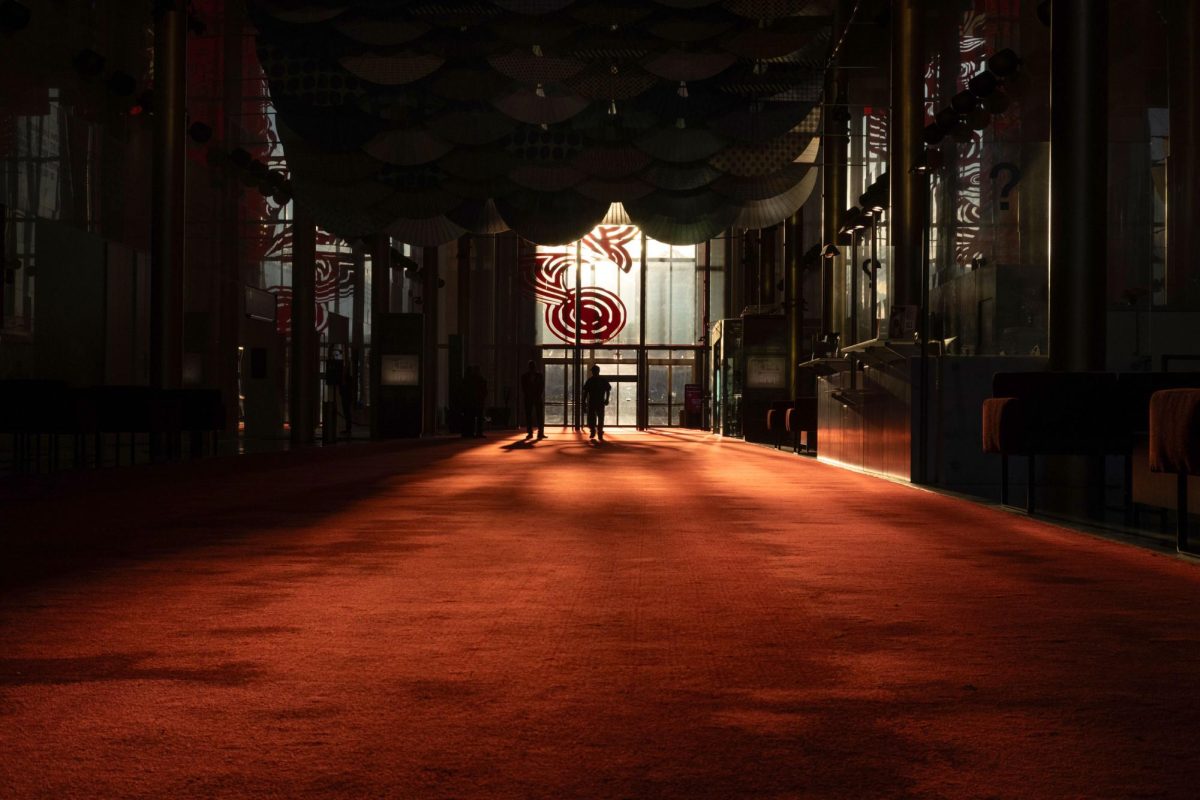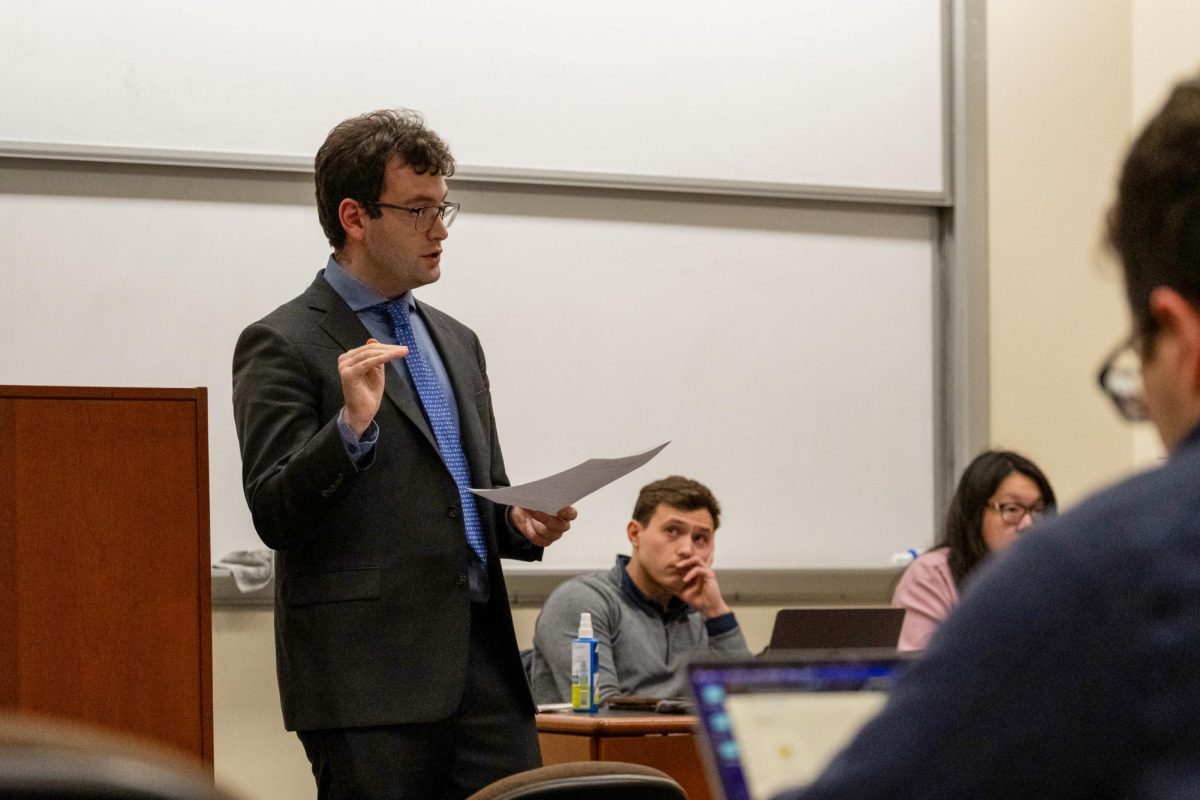Two new candidates have stepped into the race for Ward 2 Council member, challenging short-term incumbent Brooke Pinto.
Randy Downs, a Ward 2 advisory neighborhood commissioner, and Martín Miguel Fernandez, who works for a local science nonprofit, both qualified for the general election ballot last week. Downs and Fernandez said if elected, they would use the Council seat to facilitate the District’s recovery from the COVID-19 pandemic and respond to widespread demands for police reform.
Pinto won the Council’s Ward 2 special election in June, filling a vacancy left by Jack Evans earlier this year in the aftermath of an ethics scandal. She also secured the ward’s Democratic nomination in the city primary, but a complaint filed in the Office of Campaign Finance raised concerns about her own ethical standards and an alleged finance law violation.
The D.C. Board of Elections confirmed Downs and Fernandez as candidates Wednesday, the same day officials released the city’s candidate list for the general election. The two candidates join the race alongside Pinto, Republican nominee Katherine Venice and Green Party nominee Peter Bolton, according to the list.
Randy Downs
Downs is an ANC commissioner who represents parts of Dupont Circle, Logan Circle and Downtown D.C. If elected, he would be the only openly gay candidate on the Council and said he would fight to protect transgender rights, especially for those in homeless and senior living communities.
Downs said he would focus on expanding employment and affordable housing for transgender residents and would press District agencies to increase funds for those public services.
“I don’t think the city is doing enough to support the LGBTQ community, specifically LGBTQ homeless folks or trans people,” he said. “We need to do a lot more”
Downs said his accomplishments as an ANC commissioner have prepared him to serve on the Council, pointing to resolutions he’s supported that have brought bike and bus lanes, a new community center and a transgender flag crosswalk to his commission’s neighborhood.
“Over the past four years, I’ve been able to connect with a lot of individuals and community stakeholders on applications and solving problems,” he said. “I have a record of accomplishments and working with folks, and looking forward to translating that into Council.”
Downs added that he would bring a passion for sustainability and the environment to the Council, after having worked at the Sierra Club, the nation’s oldest and largest environmental organization.
Martín Miguel Fernandez
With a day job in the science field and a night gig as a local DJ, Fernandez said he has the public health knowledge and community ties needed to connect with Ward 2 residents and help D.C. recover from the coronavirus pandemic.
He said Pinto’s alleged campaign law violations and recent voting record have deemed her unfit to represent Ward 2. Fernandez said he was “dissatisfied” with Pinto’s vote against motions to increase the city’s wealth tax and sever ties between the Metropolitan Police Department and D.C. Public Schools, which he says is “an explicit demand” of Black Lives Matter D.C.
“I’m running against Brooke Pinto because I don’t believe she’s the person for this moment, ethically speaking or in terms of the needs of the social movements that are going on right now,” Fernandez said.
Fernandez, who works for the American Association for the Advancement of Science, said his upbringing and professional experience in the D.C.-area will help him serve the interests of local voters more effectively than Pinto. After he was born in Peru, Fernandez moved to D.C. at a young age and grew up seeing D.C. natives who have been “forgotten” through the city’s gentrification of low-income neighborhoods, a community he said he would fight to protect if elected to the Council.
“I haven’t forgotten the people who actually have been living here and are multi-generational, and they’re forgotten,” Fernandez said. “That’s the reality especially in Ward 2, the Black community in Ward 2, the Latino community in Ward 2 is neglected, but I don’t intend to neglect them.”
Addressing COVID-19
Fernandez said Black and Latino people in the District have been “disproportionately affected” by the COVID-19 pandemic because of unequal access to health resources in the city. He said the pandemic and fight for racial justice in the city are “intersectional issues” driven by a health equity crisis that cuts off low-income individuals from quality treatment.
Downs said the District needs to provide COVID-19 testing to residents every two weeks and support students learning online this fall by providing computers, tablets and hotspots. Lawmakers also need to dispense more funding to local employees like renters, immigrants and sex workers who may not receive federal funding because they’re not part of the “formal economy,” he said.
As an ANC commissioner, Downs said he has pushed the city to install expanded sidewalks on 17th Street for more outdoor seating and increased pedestrian space to help mitigate the spread of the coronavirus in public spaces.
Pushing for racial justice
Downs and Fernandez both said they support the Council’s decision to reallocate funds from the MPD’s budget to social services like violence interruption programs, employment services and affordable housing. Downs said he will fight to decriminalize sex work and end stop-and-frisk policies, and Fernandez said he plans to equalize access to technology for all families to facilitate remote learning in D.C. schools this fall.
“Why do we have $535 million for Metropolitan Police Department?” Fernandez said. “Again, all these issues are intersectional. Why are we committing that much money to police if people are unemployed or people are unable to pay rent? All of those things can contribute to crime.”






